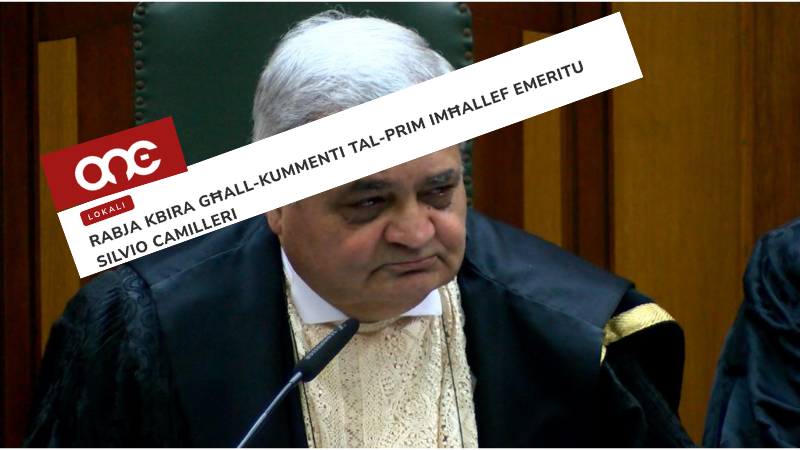The Right of Reply is not a tool for the government to counter editorials in independent newspapers and the fact that it misuses this legal tool is troubling.
One of the most recent examples occurred earlier this week when, in response to an editorial by The Malta Independent that simply questioned whether Malta was doing enough to sanction Russia for its invasion of Ukraine, the government issued a Right of Reply via the Department of Information.
The newspaper simply bowed its head and published it. Written in the style of an anodyne press release, the government claimed that Malta was fully committed to implementing any sanctions adopted by the European Union.
In Malta, a Right of Reply is provided by law to give individuals the possibility to correct or clarify information within a publication that has been wrongly reported, without having to resort to the courts.
Article 15 (1) of the Media and Defamation Act states: “Any person whose actions or intentions have been misrepresented or who has been the victim of defamation or who has had his private life intruded into through a publication is entitled to demand to have published forthwith, free of charge, in the same medium, a statement by way of contradiction or explanation.”
The law further states that the Right of Reply “shall be restricted to the correction or contradiction and/or explanation of facts and shall not extend to the submission of a different opinion”.
The abuse of a tool designed to protect the rights of private individuals betrays the extent to which the authorities wish to control what’s left of the country’s public debate.
This case builds on a number of others where the government does not answer questions by the press, only to provide its version of events as the last record.
A Right of Reply demands the same prominence as the original article, and the version untouched – abuse of this tool by the government leads to altering of the public record, often with false information.
Right of Replies are also sent via the Department of Information (DOI). This means that the statement is sent out as a press release to media organisations rather than delivered to the publication it should have addressed. Principal Permanent Secretary Mario Cutajar is a fan of this method and has issued multiple Right of Replies.
One was in response to another editorial in The Malta Independent in January about government institutions; another was in response to an opinion piece that appeared in the same newspaper by Kevin Cassar who criticised Cutajar for taking aim at the Ombudsman.
Cutajar also dispatched a Right of Reply following a stern rebuke by the Ombudsman who reminded the Principal Permanent Secretary that an independent institution does not report to him.
Sending a right of reply to multiple newsrooms through the Department of Information (DOI), Cutajar hit out at the Ombudsman, implying the independent institution was being partisan and mocking what he deemed to be delays in its operations. The Shift refused to publish the Right of Reply and instead reported its misuse and context, in the same way the newsroom treats all other Right of Replies from the government.
The Shift asked legal experts, including lawyer Andrew Borg Cardona, to clarify when a Right of Reply is warranted.
“The Right of Reply is for when people (individuals) are misrepresented and when their acts or omissions are wrongly reported. They are supposed to be limited to a correction of the incorrect reporting and not as a forum for a contrary opinion to be expressed”.
“Governments are not individuals and at best a minister whose own actions/omissions are reported on might have a case for a Right of Reply,” he said.
“The government replying to an editorial about the war in Ukraine and the Principal Permanent Secretary sending a Right of Reply to an editorial do not, in my opinion, constitute a Right of Reply that is compliant with the law,” Borg Cardona added.
The Commissioner for Standards in Public Life has repeatedly called on government officials to refrain from misusing the DOI – a department that falls under the Prime Minister’s Office.
On more than one occasion, the Standards Commissioner reminded ministers to refrain from issuing press statements that are unrelated to official matters or that are partisan in tone, such as when the Commissioner found that a press release issued by Economy Minister Silvio Schembri on the removal of thousands of companies from the Malta Business Registry was in breach of the principle of political impartiality in public service.
The government has many means at its disposal that allow it to have its say – it dominates the media landscape in the country, even through control of the public broadcaster. It has opinion columns and advertising space in all the major independent newspapers. It has career propagandists on its own TV station and an army of online trolls at the ready.
Why is it now trying to appropriate a legal measure designed for individuals to seek redress? It’s a question that independent newsrooms may wish to consider before indulging the government and its officials in this practice.














Billy clubs and boots – on paper.